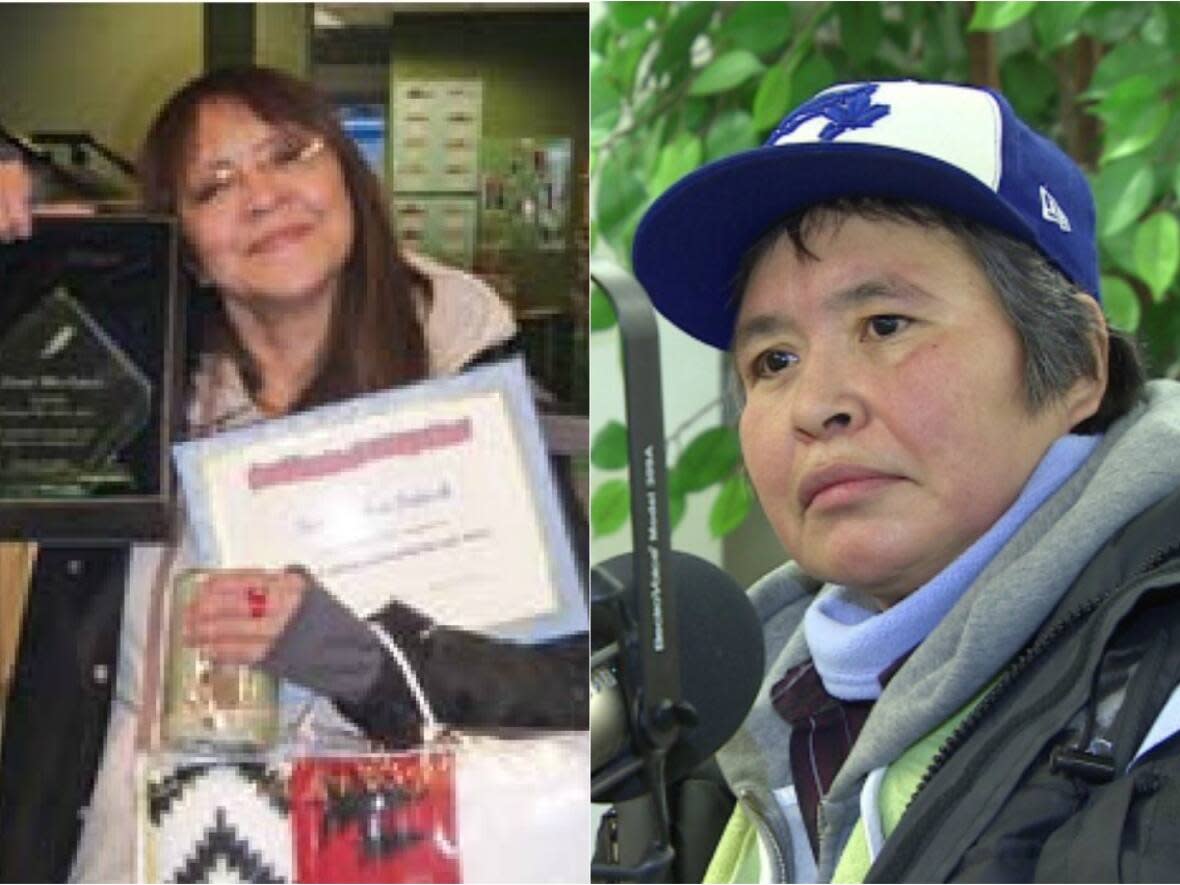Man sentenced to 18 years for deaths of Wendy Carlick and Sarah MacIntosh

Warning: This story includes graphic descriptions of violence and refers to intergenerational trauma related to residential schools.
There was bedlam in the courtroom as Everett Chief was sentenced to 18 years in prison for killing two First Nation women Thursday.
Yukon Supreme Court Chief Justice Suzanne Duncan accepted a joint submission from Crown and defence lawyers. Chief will serve two consecutive nine-year sentences for the killings and be designated as a long-term offender. Chief will also be subject to a 10-year supervision order following his prison time.
Chief, 48, pleaded guilty to killing Wendy Carlick and Sarah MacIntosh, well-known community members of the Kwanlin Dun First Nation. Chief was previously facing a count each of first- and second-degree murder and was found fit to stand trial late last year.
The victims were beaten to death in the McIntyre neighbourhood of Whitehorse in 2017. Their partially decomposed bodies were found days after the killings, sending shockwaves through the community and beyond.
Duncan said aggravating factors of the case include intimate partner violence (Chief had an on-again-off-again relationship with MacIntosh), breached probation that included a no-contact order with MacIntosh and Chief's "extreme intoxication" the night of the killings.
Calling the crimes committed "horrendous" and "brutal," Duncan told the court the sentence is appropriate. She said it at once meets a test of protecting the public while providing Chief an opportunity to change.
"It's impossible to put a value on their lives," Duncan told a packed courtroom, "to fix the very real pain in the community. I give significant weight to the denunciation of this case.
"I can only hope this provides some measure of peace."
Autopsies revealed that both women had suffered serious blunt force injuries to their upper bodies and also had high blood alcohol levels, both of which contributed to their deaths.
In Carlick's case, a forensic pathology report concluded that while her injuries alone weren't necessarily fatal, there were no other obvious causes and the injuries "contributed significantly" to her death.
Forensic analysis found a fingerprint belonging to Chief on a vodka bottle in the home. There were also bloody sockprints and no evidence of anyone except Carlick, MacIntosh and Chief being in the home at the time.
Duncan said affecting the outcome of the case is that Chief has shown "sincere remorse" for the killings, submitted guilty pleas and apologized for his actions.
On Wednesday, Chief stood and apologized — at least twice — to the families.
"I'm sorry," he said. "Hope they get healing. Start a new life for yourselves."
Duncan provided Chief with seven years of pre-trial credit. Chief will also be subject to a lifetime firearm ban, and will have to submit bodily samples for forensic analysis.
'That's it?'
Before Duncan gave her decision, Melissa Carlick, Wendy's niece, read out a victim impact statement.
She said the case has deeply impacted her family.
"I can tell you, the justice system is flawed," she read.
"The price [Chief] is paying is unfair after taking two lives. He took two innocent lives."
Duncan's decision prompted shouts and hollers in the courtroom.
One in attendance shouted, "That's it?"
Another appeared to raise her middle finger toward Chief, who was dressed in blue prison garb.
A community impact statement was also submitted in court, facilitated by the Council of Yukon First Nations. The statement says there was a ripple effect in the community after the killings, with grief, anxiety and increased drug and alcohol use taking hold of some citizens.
Doctor's assessment front and centre to decision
A psychiatric assessment of Chief found he exhibited anti-social behaviours and acute substance use, primarily alcohol. The assessment also found Chief experienced childhood trauma, within the family unit and at residential school. It also concluded that Chief is at a high-risk to reoffend, with runaway alcohol use featuring prominently.
Duncan said Chief had a traumatic childhood filled with "chaos and alcoholism" linked to residential schools, which his parents and grandparents attended as well.
Chief has 56 prior convictions, 12 of which are considered violent offences, including sexual assault, assault causing bodily harm and uttering threats.
The assessment suggests risks could be controlled through high-intensity programs geared toward mitigating substance use and cultural programs.
Duncan said close supervision, developing measures to assist reentry into society and documenting progress is vital.
"With these supports, Mr. Chief has the potential to heal," she said.


